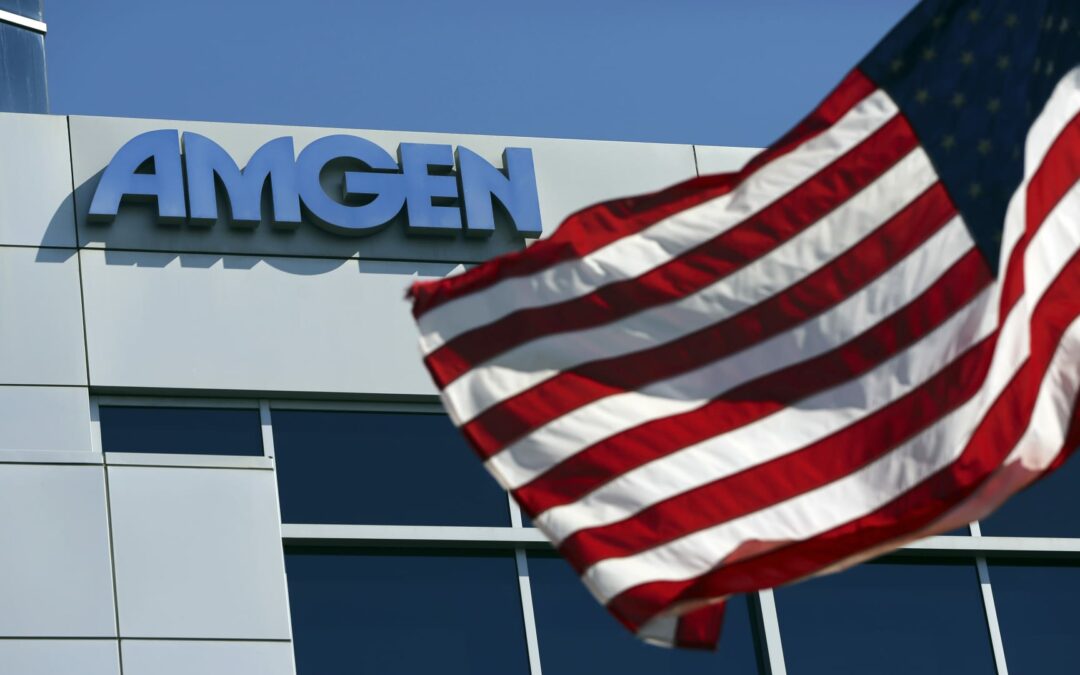Robert Galbraith | Reuters
The Federal Trade Commission last week allowed Amgen to move forward with its $27.8 billion acquisition of Horizon Therapeutics under a settlement agreement – a move that could have ramifications for a string of other pharmaceutical industry buyouts.
Some Wall Street analysts said the FTC’s decision allows the sector to breathe a sigh of relief, as it suggests that other large pending deals could proceed relatively unscathed after reviews. That includes the agency’s examination of Pfizer‘s proposed $43 billion purchase of cancer drug developer Seagen.
“The settlement materially mitigates regulatory headwinds” for the Pfizer-Seagen deal, William Blair analyst Matt Phipps said in a research note Friday. He added that the firm expects the acquisition to close at the end of the year or early 2024.
More broadly, the settlement is “a positive for the M&A space in the sector,” Truist analyst Robyn Karnauskas said in a research note Friday.
But some analysts and mergers and acquisitions experts said the settlement agreement may not stop the FTC from baring its teeth at other large buyouts in the industry. Some also speculated that the restrictions imposed on Amgen as part of the settlement could have implications for other deals.
“I think that in a positive way, this hopefully helps other companies as they get evaluated. But I also think we’re just hearing that there’s more of an appetite to be active by the FTC,” said Nathan Ray, a partner at healthcare consulting firm West Monroe who oversees M&A.
The Biden administration has moved to block a range of acquisitions across industries after decades of a light-touch approach by the government. The FTC’s lawsuit against Amgen in May was the agency’s first legal challenge to a pharmaceutical buyout in 14 years.
The suit also came amid a rebound in M&A activity in the industry: Pharmaceutical companies spent more than $80 billion on M&A in the first half of this year, according to data from Evaluate Pharma, putting 2023 on track to be the liveliest year for deals since 2019.
The settlement agreement prohibits Amgen from bundling any of its products with two of Horizon’s blockbuster drugs, among other restrictions. That practice involves offering rebates or discounts on its existing products to pressure insurers and pharmacy benefit managers into favoring the Horizon products.
BMO Capital Markets analyst Evan Seigerman said those conditions on the deal are likely a “non-factor” for Amgen, which has stated that it does not intend to bundle products.
Still, some analysts said the restrictions suggest the FTC could apply similar rules to other buyouts in the future.
“We also believe this could be a theme in future M&A wherein such restrictions…will apply to all future transactions,” Truist’s Karnauskas said in a note.
It’s unclear whether future limits imposed on other companies as part of settlements could have a more meaningful effect on their businesses. But analysts from Wells Fargo, in a research note Friday, said the restrictions imposed on Amgen “could pose a challenge for future deals.”
West Monroe’s Ray added that the settlement agreement could “open up other pharma deals for some type of review” by the FTC.
That’s because the agency appears to be comfortable finding “fairly narrow reasons for why they may have issues” with deals, even ones that don’t appear to be creating anti-competitive situations, he said. Ray contends that the Amgen-Horizon deal doesn’t reduce competition since the two companies have vastly different drug portfolios that don’t compete – a view shared by many analysts.
Even so, the settlement agreement could make the pharmaceutical industry “think more” before pursuing M&A, according to the Wells Fargo analysts.
“We are of the view that FTC is scrutinizing bigger deals more,” the analysts wrote. They added that they believe pharmaceutical companies “would want to stay under the radar with sub $10-15B deals.”
In a statement on Friday, FTC Chair Lina Khan signaled that the agency isn’t going to let up on its antitrust scrutiny in the pharmaceutical industry.
The FTC will “continue to challenge unlawful practices that raise drug prices, inhibit access, stifle innovation, or otherwise hurt patients,” Khan said.









